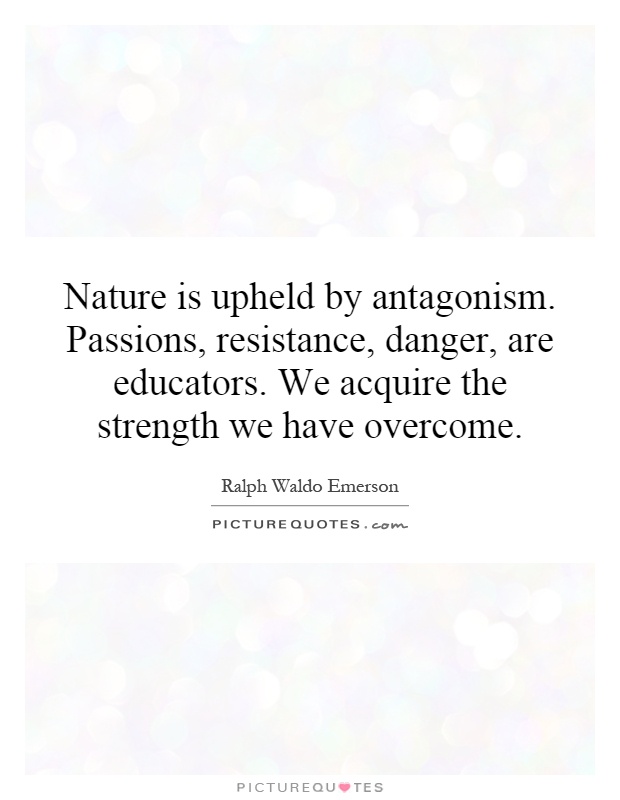Nature is upheld by antagonism. Passions, resistance, danger, are educators. We acquire the strength we have overcome

Nature is upheld by antagonism. Passions, resistance, danger, are educators. We acquire the strength we have overcome
Ralph Waldo Emerson, a prominent American essayist, poet, and philosopher, believed in the power of nature to teach and shape individuals. In his essay "Nature," Emerson explores the idea that nature is upheld by antagonism and that passions, resistance, and danger serve as educators for human beings. He argues that it is through overcoming challenges and obstacles in nature that individuals acquire strength and wisdom.Emerson believed that nature is not always gentle and nurturing, but can also be harsh and unforgiving. He saw the struggles and conflicts in nature as essential components of its beauty and power. Just as plants must push through the soil to reach the sunlight, humans must face challenges and obstacles in order to grow and develop. Emerson believed that it is through these struggles that individuals acquire strength and resilience.
Emerson also believed that passions, resistance, and danger are important teachers in the journey of self-discovery. He saw these elements as opportunities for growth and learning, rather than obstacles to be avoided. By facing and overcoming challenges, individuals can develop a deeper understanding of themselves and the world around them.
Emerson's philosophy of nature as a teacher of strength and resilience is reflected in his own life and work. Throughout his career, Emerson faced numerous challenges and setbacks, including the loss of loved ones and criticism from his peers. However, he continued to persevere and grow as a thinker and writer, ultimately becoming one of the most influential figures in American literature.












 Friendship Quotes
Friendship Quotes Love Quotes
Love Quotes Life Quotes
Life Quotes Funny Quotes
Funny Quotes Motivational Quotes
Motivational Quotes Inspirational Quotes
Inspirational Quotes